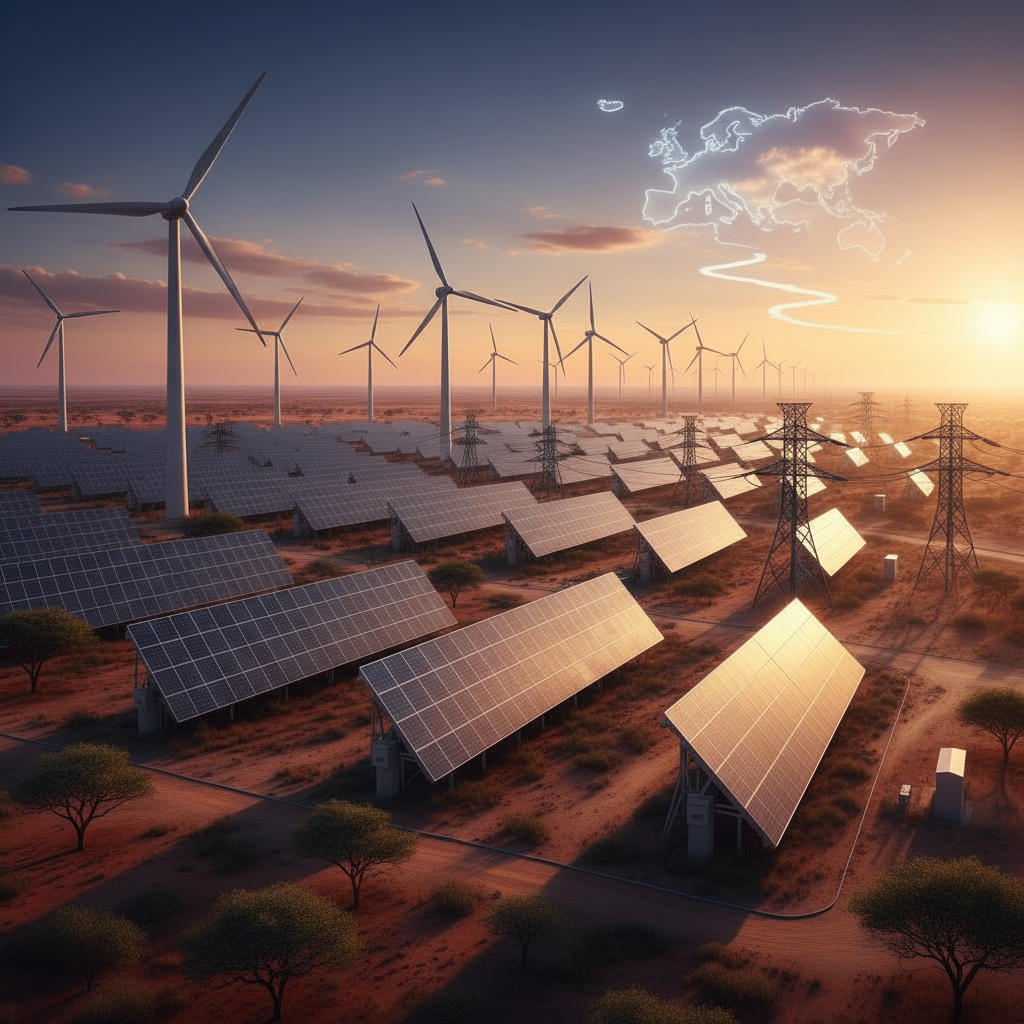A New Dawn for Africa? Europe Pledges $600 Billion for Green Energy Transformation
A seismic shift is underway in the global energy landscape, and its epicenter appears to be the burgeoning partnership between Europe and Africa. Forget the old narratives of aid and development – a new era of mutually beneficial collaboration is dawning, fueled by a staggering commitment: Europe’s pledge of $600 billion for clean energy projects across the African continent. This isn’t just about charity; it’s about strategic investment, climate action, and unlocking Africa’s immense potential as a renewable energy powerhouse.
This monumental announcement signals a profound recognition of Africa’s critical role in the global transition to a sustainable future. With unparalleled solar resources, vast wind potential, and a youthful, rapidly growing population, Africa is uniquely positioned to leapfrog traditional fossil-fuel development and embrace a green trajectory. This investment promises to be a game-changer, not only for Africa’s economic development but also for Europe’s energy security and climate goals.
Why Africa? The Unrivaled Potential of a Sun-Kissed Continent
Africa’s renewable energy potential is nothing short of breathtaking. The continent receives the highest average solar irradiation globally, meaning it could power the entire world several times over with photovoltaic technology. Countries like Morocco, Egypt, and South Africa are already leading the way in developing large-scale solar farms, but this is just scratching the surface of what’s possible.
Beyond solar, Africa boasts significant wind resources, particularly along its coastlines and in regions like the Horn of Africa. Geothermal energy is abundant in the Great Rift Valley, offering a stable and continuous power source. The continent’s vast landmass also presents opportunities for sustainable biomass and hydropower projects, though these require careful environmental considerations. This diverse portfolio of renewable resources makes Africa an ideal partner for Europe’s ambitious energy transition.
The advantages extend beyond mere resource availability. Africa’s youthful population represents a vast human capital ripe for training and employment in the burgeoning green energy sector. This offers a powerful solution to both energy poverty and unemployment, creating a virtuous cycle of development and innovation. Furthermore, by developing clean energy at home, African nations can reduce their reliance on volatile fossil fuel markets and enhance their energy independence.
The Global Gateway Strategy: More Than Just a Cheque
This $600 billion commitment is reportedly part of Europe’s broader “Global Gateway” strategy, an initiative designed to rival China’s Belt and Road. However, the focus here is distinct: sustainable infrastructure with an emphasis on clean energy, digital connectivity, and climate resilience. The Global Gateway aims to foster partnerships built on shared values, transparency, and high environmental and social standards.
Unlike some past development initiatives, this strategy emphasizes a partnership approach rather than a donor-recipient dynamic. It seeks to empower African nations to drive their own energy transitions, aligning with their national development priorities. This includes investing in local manufacturing capabilities, skills transfer programs, and strengthening regulatory frameworks to ensure long-term sustainability and equitable benefits. The goal is to create robust, self-sufficient clean energy ecosystems across the continent.
Examples of potential projects could range from massive desert-based solar farms feeding into a continental grid to distributed mini-grids providing electricity to remote communities. Investments could also target green hydrogen production, utilizing Africa’s abundant renewable energy to produce a vital fuel for decarbonizing heavy industry and transportation both in Africa and Europe. Imagine vast solar arrays in the Sahara producing green hydrogen that is then shipped to European industrial hubs – a true win-win scenario.
Navigating the Road Ahead: Challenges and Opportunities
While the scale of this pledge is incredibly exciting, executing such an ambitious undertaking will undoubtedly present its challenges. Issues such as political stability, regulatory frameworks, grid infrastructure development, and access to skilled labor will need careful attention. Transparency and good governance will be paramount to ensure that the investments translate into tangible benefits for local communities and nations.
However, the opportunities far outweigh the obstacles. This partnership could fundamentally reshape Africa’s economic trajectory, lifting millions out of energy poverty and fostering sustainable industrialization. It can position Africa as a global leader in renewable energy production and innovation. For Europe, it secures diversified, clean energy sources, reducing reliance on fossil fuels and strengthening its position in the global climate fight. This shared vision of a decarbonized future is a powerful motivator.
Furthermore, this investment signals a crucial shift in how global powers view Africa – not as a recipient of aid, but as an equal partner in addressing the world’s most pressing challenges. It’s a recognition of Africa’s growing economic and geopolitical importance, and its potential to contribute significantly to global sustainable development.
A Brighter, Greener Future
The $600 billion pledge for clean energy projects in Africa is more than just a financial commitment; it’s a powerful statement of intent. It represents a bold vision for a future where energy access is universal, economies are green, and climate change is tackled through collaborative action. As the sun continues to rise on the African continent, this partnership promises to illuminate a path towards a brighter, more sustainable future for both Africa and Europe, and indeed, for the entire world. The journey ahead will require dedication, innovation, and unwavering partnership, but the potential rewards are truly transformative.
